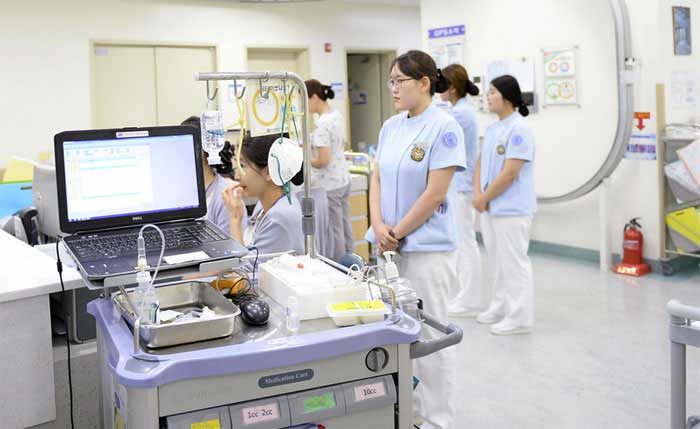You wouldn't want to make it all the way to South Korea and then find out you are not allowed to enter or you don't have all that's necessary to be allowed past the border. You also want to stay safe, get all your jabs beforehand as the body takes time to build immunity to certain viruses. Here are some guidelines and recommendations by the UK government to make your trip as smooth as possible.
This information shows "the UK government's understanding of the rules currently in place. Unless otherwise stated, this information is for travellers using a full ‘British Citizen' passport.
"The authorities in the country or territory you're travelling to are responsible for setting and enforcing the rules for entry. If you're unclear about any aspect of the entry requirements, or you need further reassurance, you'll need to contact the embassy, high commission or consulate of the country or territory you're travelling to."
It is also worth checking with your passport provider or travel company just to double check that your passport and other travel documents comply with South Korean government's requirements.
When it comes to visas, it really depends on where you are from. "If you have a British Citizen passport you can enter South Korea as a tourist for up to 90 days without a visa. You must also have an onward or return ticket. It's illegal to work on a tourist visa, whether as a teacher or in any other capacity.
"If you have a different type of British nationality, or are travelling for any purpose other than tourism, you should check visa requirements with the Embassy of the Republic of Korea, London."
Some other piece of information that is important to keep in mind is that your passport should be valid for a minimum period of 3 months from the date of entry into South Korea. "UK Emergency Travel Documents are accepted for entry, airside transit and exit from South Korea."
Always check the website of the Korea Customs Service before travelling just to check on restricted or prohibited items that may not be brought into the country. "If you are in any doubt about the legality of any items - including medications -you should declare them on entry."
This is important information to bear in mind before travelling if you are a British male of Korean origin whose name appears on the Korean family register: you may be liable for military service even if you are travelling on your British passport.
To get a visa to teach English in South Korea you must have a 3-year university degree. A TEFL qualification alone is not sufficient. "British nationals teaching English in South Korea have sometimes found living and working conditions to be below expectations, and have encountered difficulties getting the correct visas and residence permits. There have also been complaints of breach of contract, confiscation of passports, payment being withheld and inadequate or no medical insurance. Check all terms and conditions of your employment carefully and if possible speak to other teachers from the place where you plan to work before accepting any offer. For those in possession of a work visa all employment changes must be authorised by Korean Immigration."
It is important to visit your GP a month or six weeks before travelling to check if you need any jabs and for the vaccinations to take effect, and also for other preventive measures. "Check the latest country-specific information and advice from the National Travel Health Network and Centre (NaTHNac) on the Travel Health Pro website or from NHS (Scotland) on the fitfortravel website. Useful information and advice about healthcare abroad is also available on the NHS Choices website."
Although medical and dental care in South Korea is, in general, really good, it is often expensive. To top it all up, there's a good chance that staff may not speak English. That is why you need to make sure you have the right travel health insurance and enough funds to cover the cost of any medical treatment abroad and repatriation. "If you need emergency medical assistance during your trip, dial 119 and ask for an ambulance. You should contact your insurance/medical assistance company promptly if you are referred to a medical facility for treatment."
Beware that there's a risk of tick-borne disease across Korea in spring. If you are taking part in leisure activities that involve grass, make sure you wear long sleeved shirt/tops and trousers.

